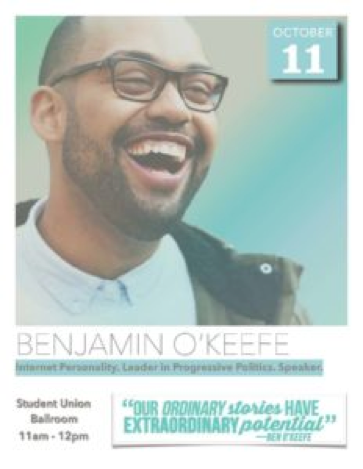The Lost Paradise
Article by Reed Worrell, Assistant Editor
“Remembering Paradise Park” is the title of Tallahassee Community College Professor of English Lucinda Vickers’ new book. It is also the title of the art exhibit that can currently be found in the Fine and Performing Arts Center on TCC’s campus.
The exhibit which is on loan from the Appleton Museum of Art showcases the lives of African-Americans in a way that’s different from what can usually be seen from the Civil Rights Era, participating in things from barbecues to beauty pageants, and even Boy Scout gatherings.
The black and white photography is the work of photographer, Bruce Mozert, who was famous for his underwater pictures of everyday life.
As the only licensed photographer for Paradise Park, his pictures are what little remains to document what was once, one of only three beaches open to African-Americans in the state of Florida.
His photos also illustrate Ms. Vickers’ book about African Americans’ experience with tourism in the South and at Paradise Park, the counterpart to the “whites only” Silver Springs.
The process of writing the book helped to shape how she looked at segregation and travel in America after the end of slavery.
“A lot of people don’t think about travel when they think about civil rights, they don’t think about vacationing, but that was a big problem,” said Vickers “Where are you gonna go? Where can you swim? Where can you sleep? All those things were restricted.”
For African-Americans, this was a space for recreation and gathering that drew up to 100,000 visitors annually across the country from New York to California.
In 1969 Paradise Park faced destruction following the passing of the Civil Rights Act, which outlawed segregated businesses.
Vickers expressed how bad the community felt about the loss of the park and part of their history.
“One guy told me he had jumped the fence and would go sit in that space because it felt so good to him,” Vickers said about a person she
interviewed for her book.
Nowadays, Paradise Park lives on in the photography of Bruce Mozert, in the memories of those who went while it was open, and in Vickers’ book.
To learn more about the Civil Rights Era, lectures will be held in FPAC 104 on March 14 from 11 a.m. to 12:15 p.m. by speaker Doby Flowers, M.S., Civil Rights Activist and Integration pioneer and first homecoming queen at FSU.
And on March 28 from 2 to 3:15 p.m. by Dr. Tameka Bradley Hobbs, author of Democracy Abroad, Lynching At Home.

